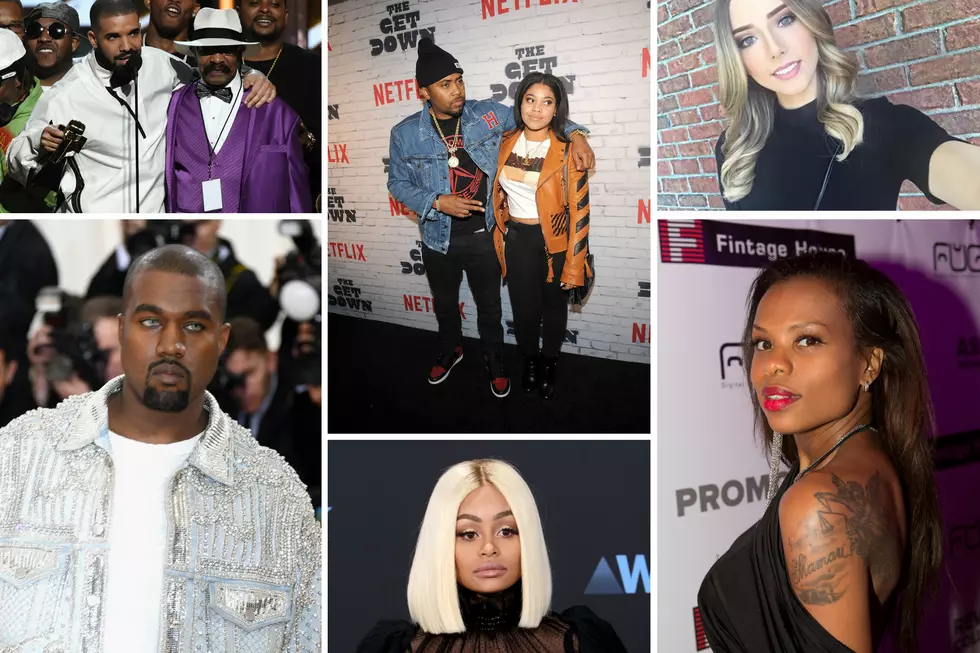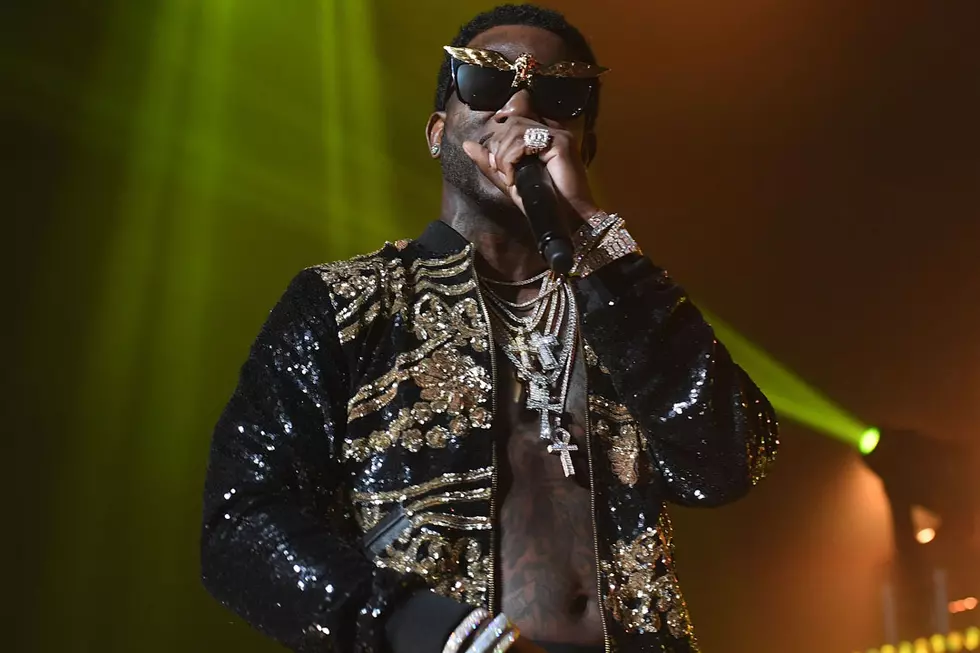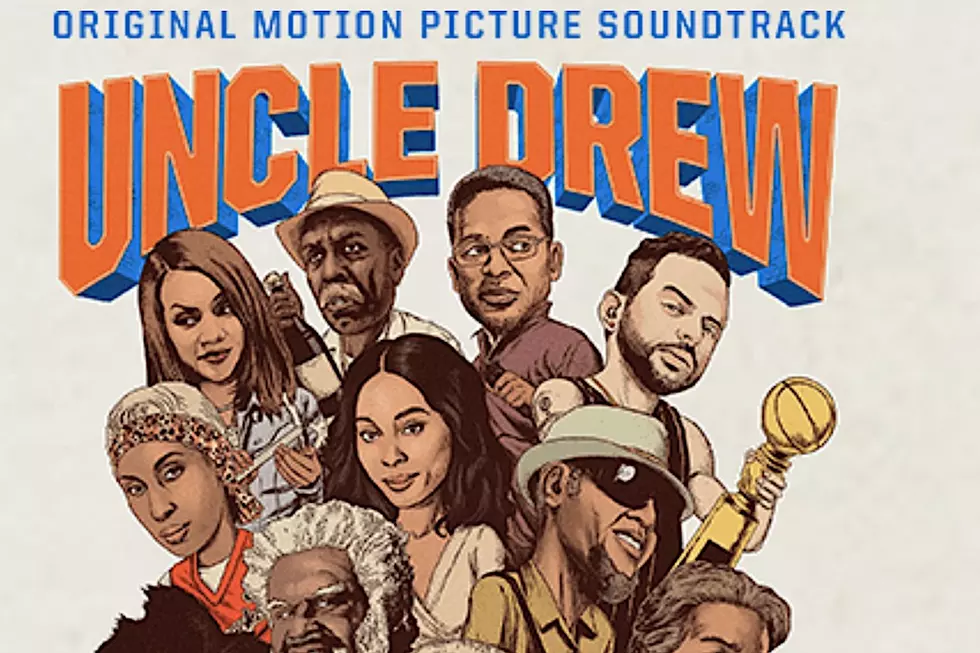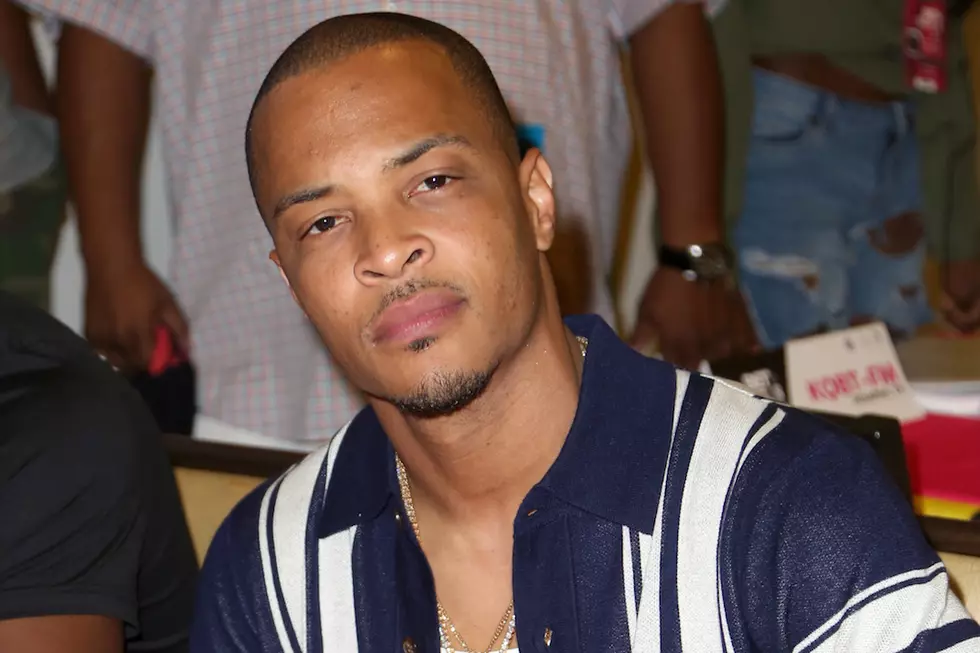
10 Years Ago: Gucci Mane Releases His Debut Album ‘Trap House’
No major city has produced more star talent than Atlanta. Rap acts like OutKast, Goodie Mobb and Jermaine Dupri's So So Def label has introduced the country to the city's unique sound, fashion and slang throughout the 1990s. In the early 2000s, we saw acts like Lil Jon & the Eastside Boyz, Ludacris and Ying Yang Twins emerge with a slew of club-friendly anthems that helped shift rap's focus back to the south.
But the wave of upstarts out of the home of Freaknik would cement the city's influence on the culture with T.I. and Young Jeezy, among others releasing albums that were considered instant classics by most rap enthusiasts.
This renaissance of Atlanta rap also influenced Gucci Mane who has now become the talent-monger and cult figure that he is today. Beginning his rap career as a member of the Sign Yourself Click, Gucci linked up with producer Zaytoven and bossed up with his own label, LaFlare Entertainment. After heading to New York in search of a distribution deal and returning home empty, he was introduced to Big Cat, the head honcho of Big Cat Records. Ultimately deciding to form an alliance with the label that brought Khia to prominence, Gucci hit the streets hard with songs like "Black Tee," a response to Dem Franchize Boyz hit record, "White Tee," as well as a collaboration with fellow rising local rapper Jeezy with "So Icy."
Securing a distribution deal with Tommy Boy Records, Gucci continued to work the underground while prepping for the release of his debut album, Trap House. But things took an unexpected twist just weeks prior to the date of Trap House hitting stores. The Atlanta rhymer was involved in an life-threatening altercation due to the very song that had afforded him his newfound fame. Allegedly, Jeezy took umbrage to Gucci's comments made about him in a 2005 interview with Murder Dog magazine.
The interview was followed by gunmen breaking into Gucci's home but the rapper was able to turn the tables on his intruders. One man, who was eventually identified as an associate of Jeezy, was shot and killed. Gucci surrendered to police and he able to bail himself out in time to experience the release of his debut album as a free man.
Released on May 24, 2005, Trap House may not have arrived with the fanfare of other LP's from that time, but was considered a success for an independent artist. The album creeped into the top 20 of the Billboard R&B/Hip-Hop Albums charts and landing at the top spot on the Billboard Heatseekers Album chart.
Despite not having the promotional roll-out of a major label artist, Gucci was also able to pull in respectable guest stars, including Bun B, Killer Mike, Young Scrappy, and Khujo of Goodie Mobb.
After a short intro, Trap House begins with the album's title track, a mid-tempo selection that gets the album going on a decent note. Produced by Shawty Redd, the beat sounds like an outtake from Redd's TM 101 sessions with Jeezy. Gucci's flow sounds eerily similar to the Snowman's lyrical style, from the hook to the very first verse.
We get a proper introduction to Gucci on the following track, "That's All," which sees the ATL rhymer sounding comfortable in his skin and giving shades of the Gucci we know and love today. Trap House hits a speed-bump with "Booty Shorts," a Zaytoven produced song that features a grating hook that takes away from Gucci's steady performance.
"So Icy," featuring Young Jeezy and Boo from Concentration Camp, is the song that introduced Gucci to the rap world. Similar to reality TV, it's a guilty pleasure, but once you get past the guilt, it's impossible not to enjoy. While "So Icy" may be hit-or-miss, depending on what side of the fence you're on, "Two Thangs," which is reminiscent of his 2009 hit single, "Wasted," is among the standouts on the album.
The Guwop King shows love to his East Atlanta stomping grounds on "That's My Hood," another Jeezy-esque track with Shawty Redd behind the boards. The LP hits yet another skid on "Lawnmower Man," an underwhelming track with a horrendous hook that drops from being listenable to a candidate for the skip button.
Atlanta pride is in the air on "Black Tee," a posse cut featuring Bun B, Jody Breezy, Killa Mike, Jeezy and Lil Scrappy that stands as one of Trap House's finer moments and sees all rappers bringing their A-Game.
Gucci continues to share mic duties on the Shawty Redd-produced "Cutting Corners," this time connecting with Goodie Mob member Khujo, who compliments Gucci's stunt-astic musings. "Hustle" is a tolerable song, but the repetitive hook takes away from its potency.
Trap House hits its pinnacle with the Young Snead-assisted "Damn Shawty," which is the best track overall on the album. Produced by Heatmakerz, the beat boasts an inviting soundscape that is perfect for you to bump in your car. The LP closes out with "Go Head," a turnt-up offering featuring Mac Bre-Z that ends the album on favorable terms.
Trap House was the public's first dose of Gucci Mane, which set the foundation for his career. It does have its lesser moments, but as a whole, the collection holds up pretty well and is a solid introduction to La Flare. Widespread acclaim may have alluded him early on, but since his come-up, Gucci has amassed one of the biggest followings on an underground level.
Legal troubles may have kept him from fully capitalizing on his popularity, but he remains one of the most prolific artists in rap, even from the jail cell. Add in his knack for stumbling across talent like Wacka Flocka Flame, Nicki Minaj, Young Thug and Young Scooter, among others, and it's apparent that Gucci Mane is one of the greatest minds in southern rap today.
And it all started at the Trap House.
More From TheBoombox

![[Exclusive] Mario Talks Upcoming ‘Dancing Shadows’ Album, Creative Freedom & Keeping R&B Music Alive](http://townsquare.media/site/625/files/2018/07/mario.jpeg?w=980&q=75)



![T.I. Initially Turned Down Brian Grazer’s Offer for Biopic [VIDEO]](http://townsquare.media/site/625/files/2018/05/T-I-Turned-Down-Biopic-Offer.jpg?w=980&q=75)



